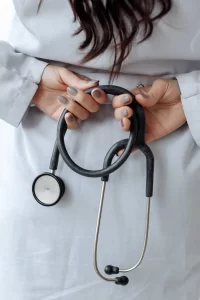Though we naturally think of addiction as something that affects ordinary people, doctors can become addicts too. Addiction is an equal opportunity destroyer, so no matter what profession you may be a part of addiction can be a problem. Addiction among medical professionals is especially worrisome because of the amount of access they have to drugs. In addition, the responsibility doctors have to prescribe drugs to others puts them in an especially tricky situation when they are struggling with addiction. In some tragic cases, doctors become addicted to the very drugs they are prescribing to their patients. It’s not an impossible situation, but is it something that happens? Are there doctors out there that are addicted to drugs?
The short answer is yes, there are doctors that may be, or have been addicted to drugs. Addiction, in any form, is a serious issue and it’s important to understand the risks for physicians, nurses, and other healthcare professionals. Even though doctors may be aware of the dangers and implications of addiction, that doesn’t necessarily mean that they will be immune to its effects. Like anyone else, doctors can find themselves in a situation in which they have become addicted to drugs.

It’s important to point out that the vast majority of doctors are not addicted to drugs. After all, becoming a doctor takes a great deal of hard work and dedication and for the most part, it is the furthest thing from addiction. It’s more likely that doctors will be aware of and understand addiction and its associated risks, and are more likely to be proactive in preventing or dealing with addiction. That being said, there are some doctors, just like any other profession, that battle addiction.
When someone is a doctor, there is the potential for them to have greater access to drugs than the average person. This can make addiction more likely for doctors. The greater the access to drugs, the more difficult it is to resist the temptation of using drugs. This is especially true if the doctor in question is familiar with the pain relief drugs they’re prescribing. It’s not out of the realm of possibility that a doctor may start out using them to “self-medicate” and actually get addicted to those very same drugs.
Unfortunately, there are doctors in the medical community that are currently addicted to drugs. This can pose a risk to the medical community as a whole and put patients in danger. If a doctor is high, or impaired in any way, that could lead to serious complications and even death. It’s essential for doctors to be aware of the risks of addiction, and to be proactive about talking to a professional if they believe they have a problem with drugs. It’s also important for medical boards and institutions to be aware of signs of addiction and to take appropriate steps to remedy the problem.
Though it’s rarely talked about, addiction is still an issue that affects members of the medical community. Drug addiction can have serious implications not only for the doctor in question, but also for their patients. It’s important for doctors to be aware of the signs and symptoms of addiction and take the necessary steps to get help and address any problems they may be facing. The last thing anyone wants is for a doctor to be treating their patients while under the influence of drugs or alcohol.
